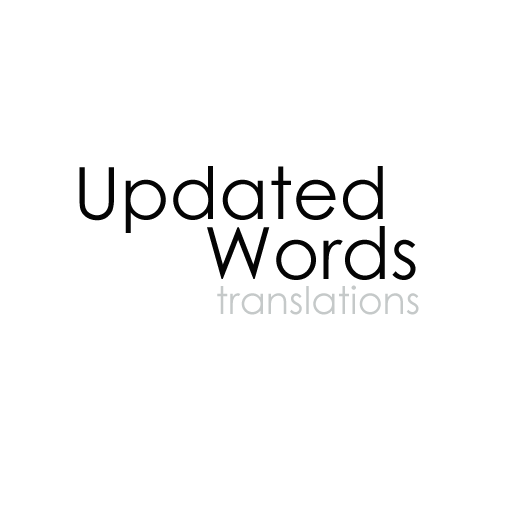People who work in the field of languages are used to having their skills devalued. After all, language is not a field seen as specific enough like medicine, chemistry or law. Go to any preschool and ask the kids what they want to be when they grow up: scientist, footballer, singer, teacher, plumber… You will seldom hear the words “translator” or “proofreader”, these aren’t seen as either glamorous or essential professions. Language skills are devalued from early on in our society. After all, almost everyone these days can read and write and, in most countries, a second language is part of compulsory school. The level at which a language professional can provide a language service is overlooked.
Language skills’ acquisition is, therefore, perceived as part of life, something that anyone can do. Sure, you can study it and learn more specific skills but it’s not necessary for the most part. People study foreign languages for fun, as an added skill for another job, or just to get by, never because it is perceived as an essential skill to acquire a profound knowledge of a language. With translation, it’s more than speaking and writing in two different languages. Being bilingual or having learnt another language in-depth doesn’t make you automatically a skilled translator. This social devaluation of language work not only translates as lower wages but also as less work available for language specialists. Everyone knows someone who is “good at writing” or “knows X language” and they tend to go to these people to do the work they should be paying a professional to do. Often, these people are also friends or family and they do their work for free, making it even harder for the real professionals to assert their fair rates. Freelancers see this all too often, especially those in the languages’ field. People ask us for quotes and when you provide them, they complain it’s too costly and, after all, their friend’s girlfriend works at a hotel and speaks good English so she could do that translation for a lot less. It can be tempting to lower your rates to make your prices more appealing, but freelancers need to bear in mind that “family and friends” are not our direct competition, they are not the professionals offering the same kind of services we do. People get what they pay for and if their wish is for a lower quality translation or a sub-standard text at a cheap price, then that is what they’ll get. (However, what usually happens is that clients want high-quality results for the cheapest price).
Recently, I encountered a crass example of a business not willing to invest in language services. A new local restaurant paid for a big outdoor in a central part of town. Hardly anyone in town will miss it. This was certainly a well-thought-out investment in marketing for this new business and approved by all management levels. The design was simple, the logo took up more than half the outdoor space and the text was straightforward: name of the restaurant, the type of food they specialised in and the address. However, one of the 26 words was spelt incorrectly and that word was “restaurant” which was spelt “restautant”. This mistake could have easily been spotted by anyone, including “friends and family” but such is the devaluation of language services that this business potentially didn’t even consider the consequences a typo could have on their marketing effort. A restaurant business with a typo on the word “restaurant” tells me that it is prone to overlooking things, to faux-pas, to not caring about the details. A restaurant that allows a typo on one of the biggest outdoors in town may also be the kind of restaurant that overlooks use-by dates, food safety rules, the fact that there’s a fly in my soup or that my knife is dirty. My guess is that this business, like many others, didn’t think to hire a proofreader and probably thought they could do it themselves or get away with asking a friend. A language professional wouldn’t allow this to happen and would have spotted this typo straight away.
This is, of course, a blatant and exaggerated example of the difference hiring a professional can make in the public perception of a business and why hiring a skilled language professional and paying them their fair rates is worth it. Language professionals (writers, copywriters, editors, proofreaders, translators, etc…) are highly-skilled in what they do. Their abilities go beyond the general knowledge and they have spent years learning and honing these skills, this is why they could and should charge more than your neighbours or your friend from school who used to write short stories. In translation, in particular, competition is already fierce between qualified service providers because of globalisation. Earning 0.05€ per word may be reasonable in certain countries where a Euro buys a lot more, but in Europe, for example, this is a very low rate that most qualified professionals can’t afford to charge. Then, there’s also the difference in rates between qualified translators and people who do translation because they have a general knowledge of a source and target language, with people often choosing an average service for a cheaper price.
Although we can’t claim this tendency to choose the cheapest service regardless of quality is exclusive to language services, this is an area where it happens more often due to the way language skills are perceived: easy to acquire, unspecialised and generalised. This is, indeed, far from the truth. Yes, most people have a good grasp of reading and writing and yes a lot of people have studied a foreign language, but to provide a service such as translation, copywriting or proofreading, you need a lot more than basic competence. To provide excellent language services, as those business and individuals should seek, a language specialist has spent a considerable amount of time and money investing in their education and training. You wouldn’t ask a person who cooks a basic lunch and dinner for their family to cook a banquet for the Queen, so why would you have someone who enjoys books in their spare time proofread your big outdoor advertisement? As language professionals, it is up to us to keep our dignity intact and not succumb to the pressure of devaluing language services by offering high-quality services at a fair rate.

